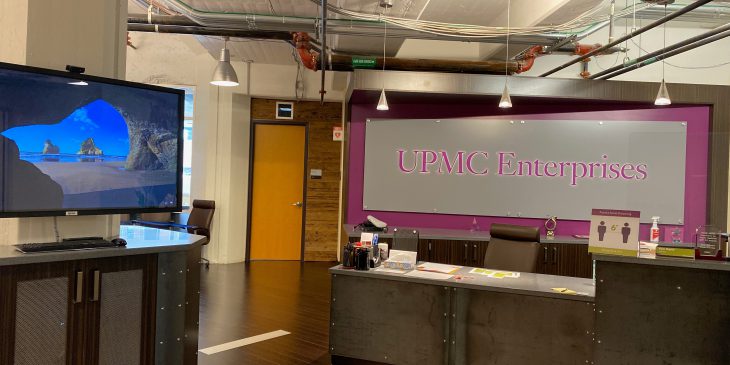UPMC Enterprises, the commercialization, venture capital and innovation arm of UPMC, has been supporting the health system’s innovation mission for many years. Two companies focused on telemedicine that grew out of UPMC have been particularly involved in the response to COVID-19.
Curavi Health, which provides telemedicine services for elderly residents in post-acute care settings, and Infectious Disease Connect (ID Connect), which provides infectious disease services via telemedicine, have experienced a surge in demand for their services.
Protecting the Most Vulnerable
Curavi, which was founded in 2016 on the work of UPMC physicians in the University of Pittsburgh Physicians Department of Geriatrics, serves over 100 skilled nursing and post-acute facilities through customized telemedicine solutions. With its platform, nursing home staff can connect with a physician for help with any clinical issue, including assessing whether a patient should go to the hospital.
Curavi’s clinicians are working around the clock to keep nursing home residents in their facilities when that is the safest place for care. Recent changes to federal regulations in response to the pandemic expanded access to telemedicine, which allowed Curavi to quickly implement a wide variety of portable telemedicine services for new facilities, providing them with another tool to fight COVID-19.
Now more than ever, Curavi’s mission to care for frail seniors is of the utmost importance. Curavi merged with several likeminded organizations earlier this month to form Arkos Health, a company that will provide virtual care solutions and health insights to seniors and other vulnerable populations across the United States.
Helping Rural Hospitals
In recent years, a national shortage of infectious disease specialists has made it difficult for many community and rural hospitals and health care facilities to recruit and retain physicians with infectious disease (ID) expertise. In addition, many hospitals do not need the services of a full-time ID specialist. Recognizing this need, ID Connect provides world-class, academic ID expertise through an end-to-end telemedicine solution.
In the wake of COVID-19, ID Connect’s specialists are continuing to support their current customers with full levels of service, including a 24/7 call center. In addition, ID Connect is providing as-needed telephonic consultations—including COVID-19 related calls—to as many additional hospitals as possible.
Investing in the Future
With care shifting to virtual platforms in response to COVID-19, it is likely that 2020 will be a turning point for digital health—and a boost to companies like Curavi and ID Connect. Providers and patients alike who were previously hesitant to use telemedicine have seen its many convenient benefits and are unlikely to return to their old ways after the pandemic.
“Behind every telemedicine solution at UPMC is a commitment to the patients and communities we serve. In times like these, innovation is not optional, but required,” said Tal Heppenstall, president of UPMC Enterprises. “The pandemic has forced conversations about digital health solutions to happen now that would have otherwise taken years to implement. We have invested heavily in UPMC’s infrastructure and relevant startups over the last several years, and we will continue to do so in order to provide the level of care our patients expect.”
This is the final article in a four-part series about the impact of telemedicine at UPMC during the COVID-19 pandemic. Visit the Inside Life Changing Medicine blog to read the previous installments.








